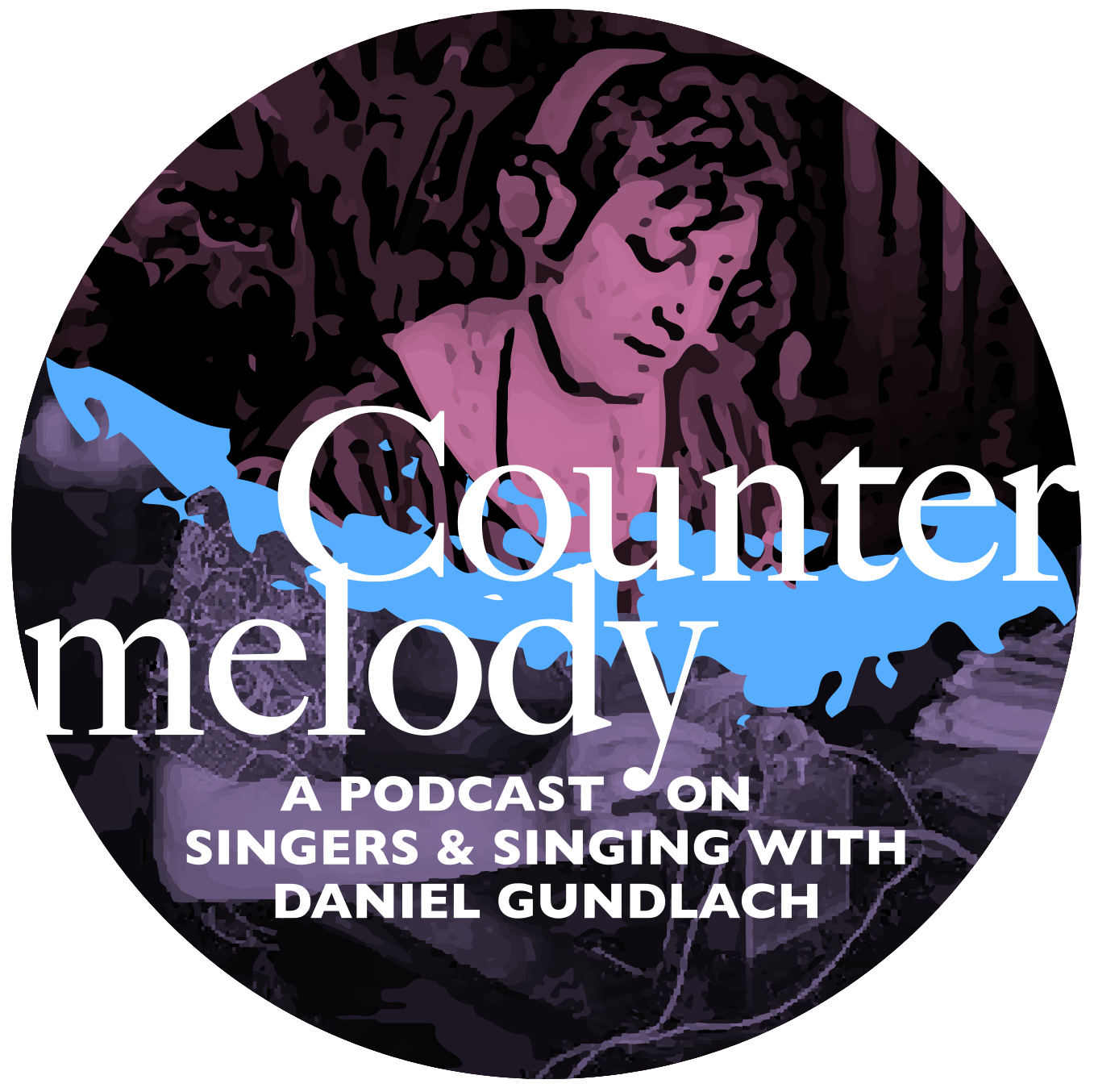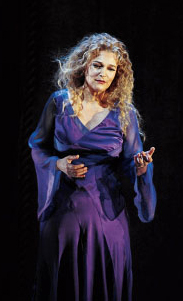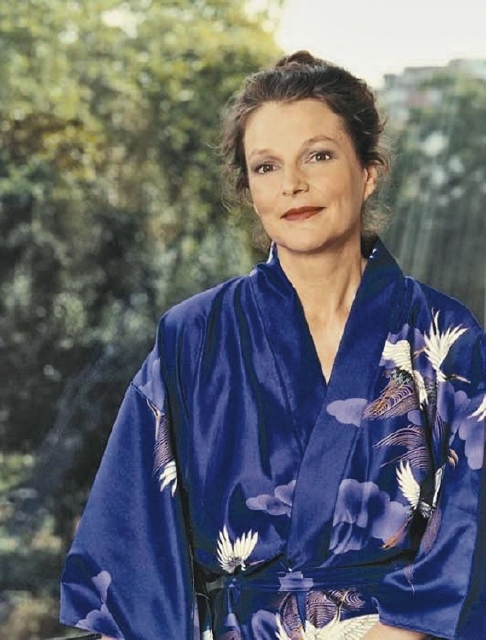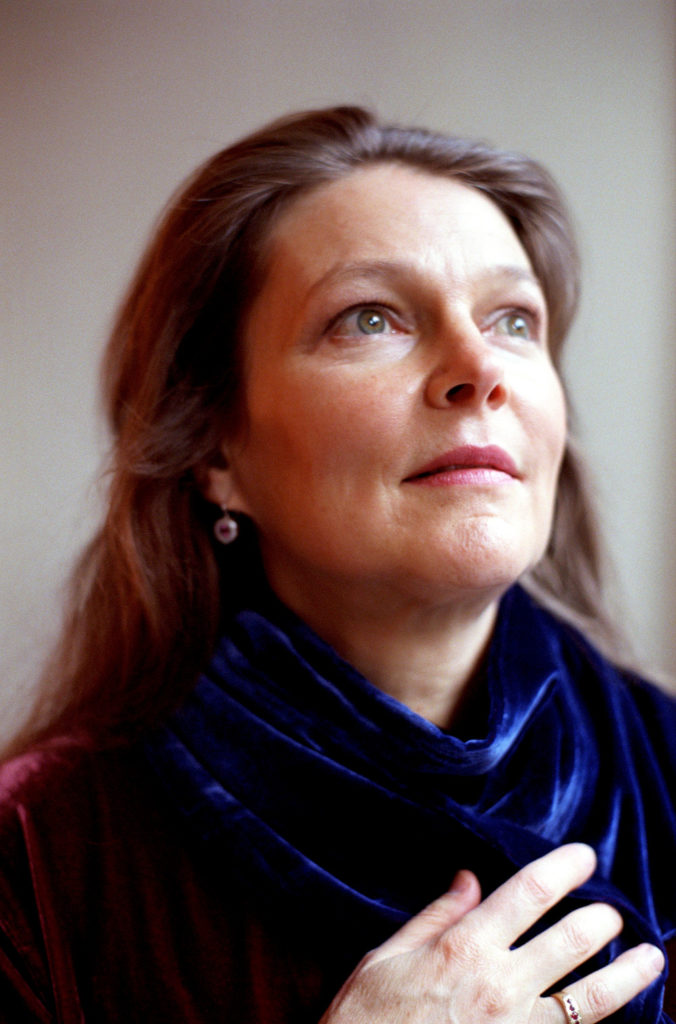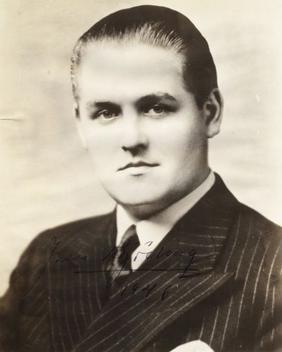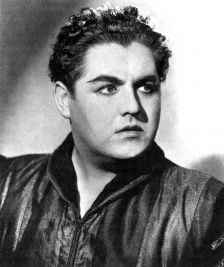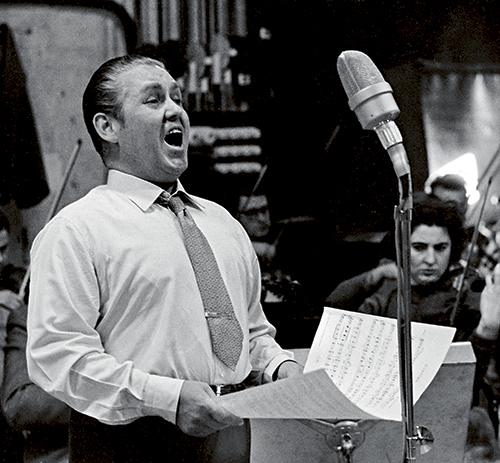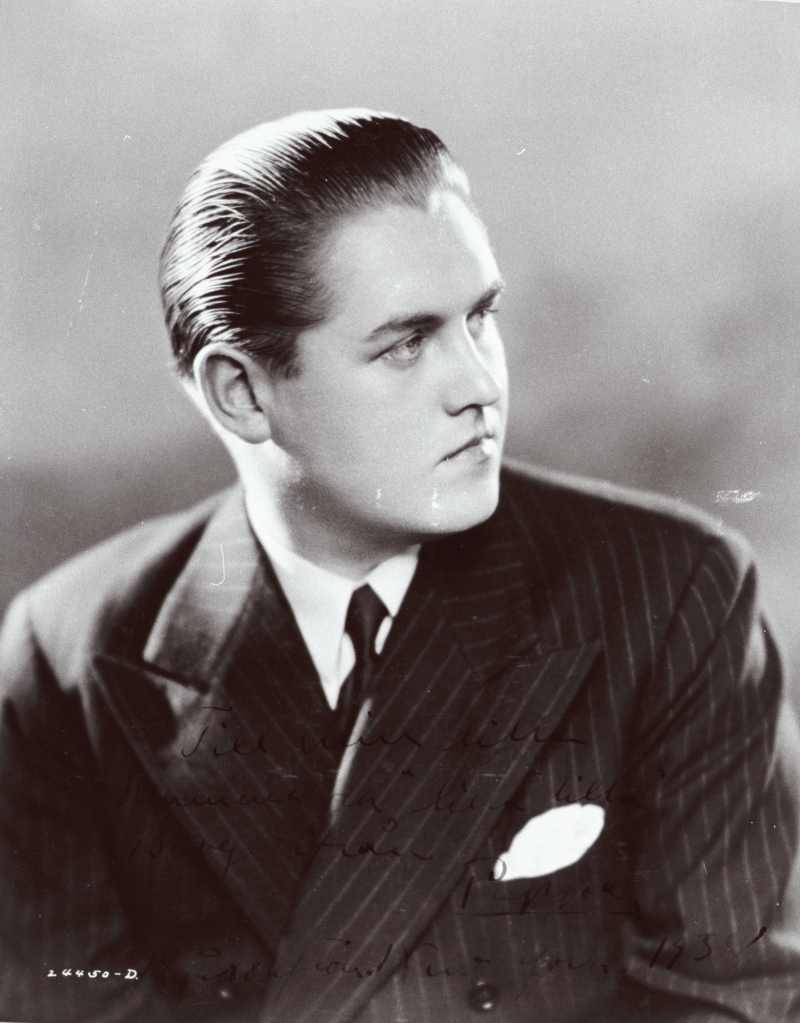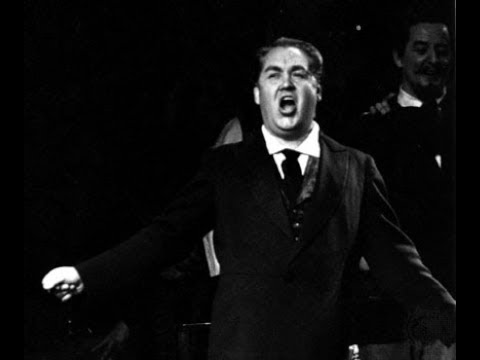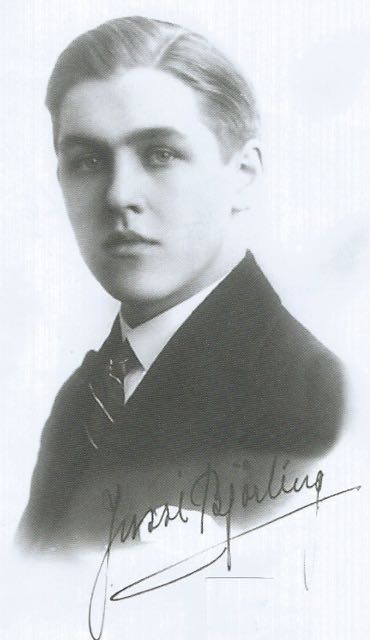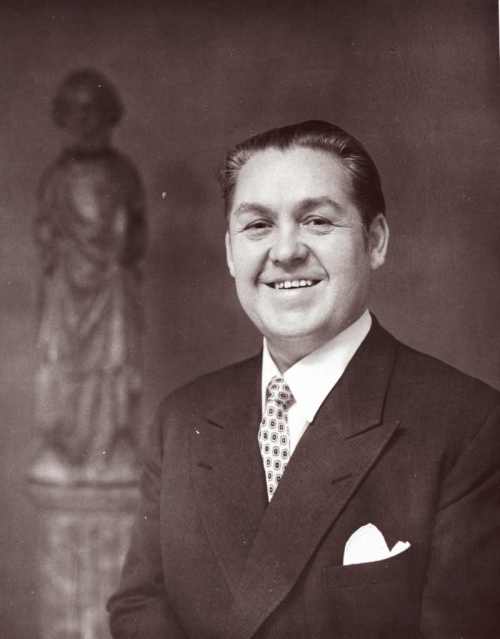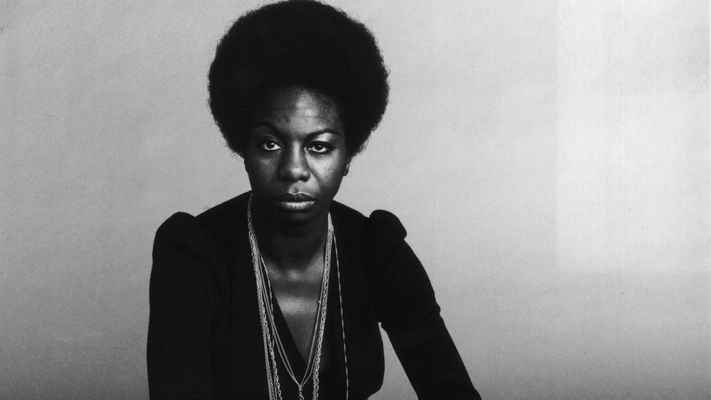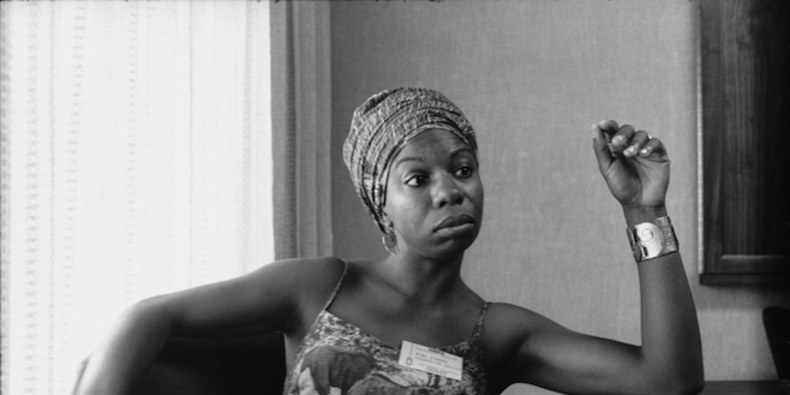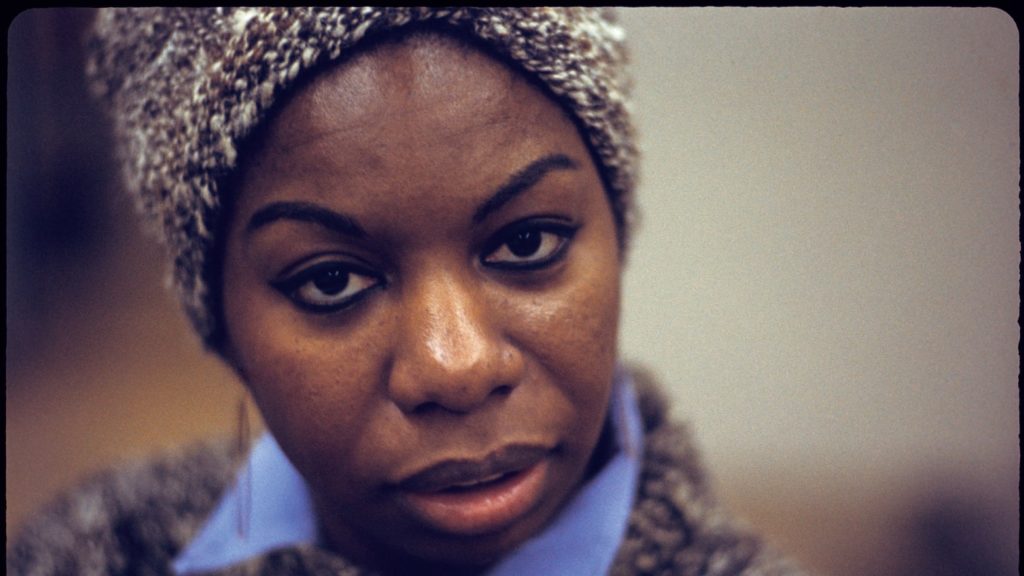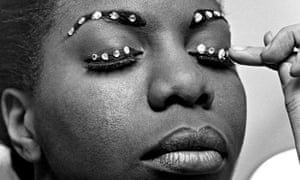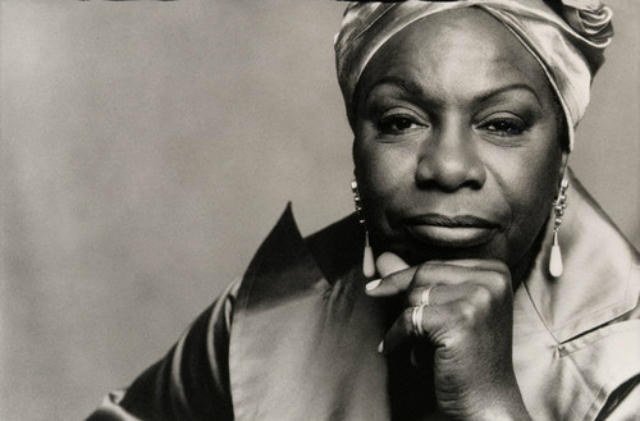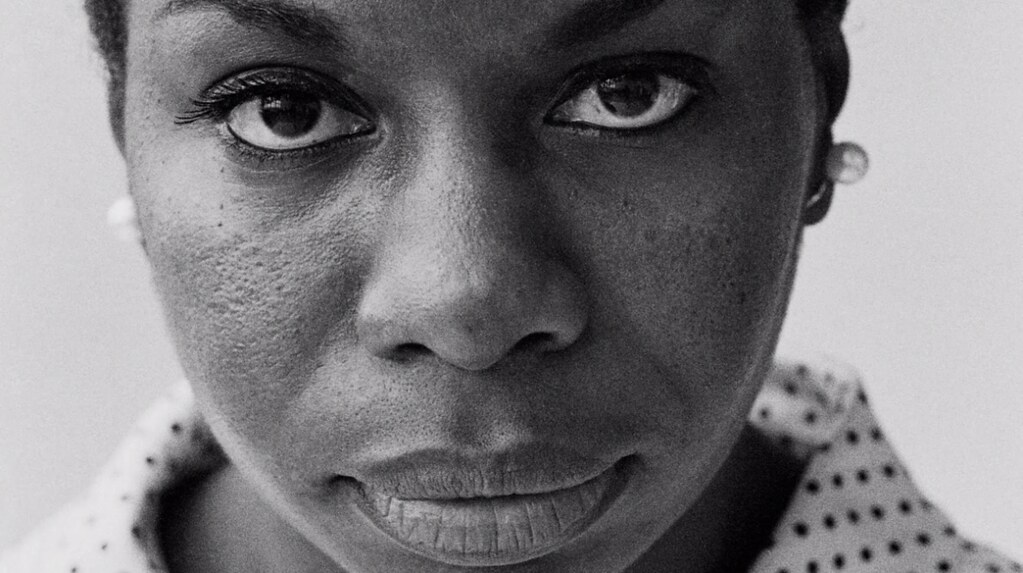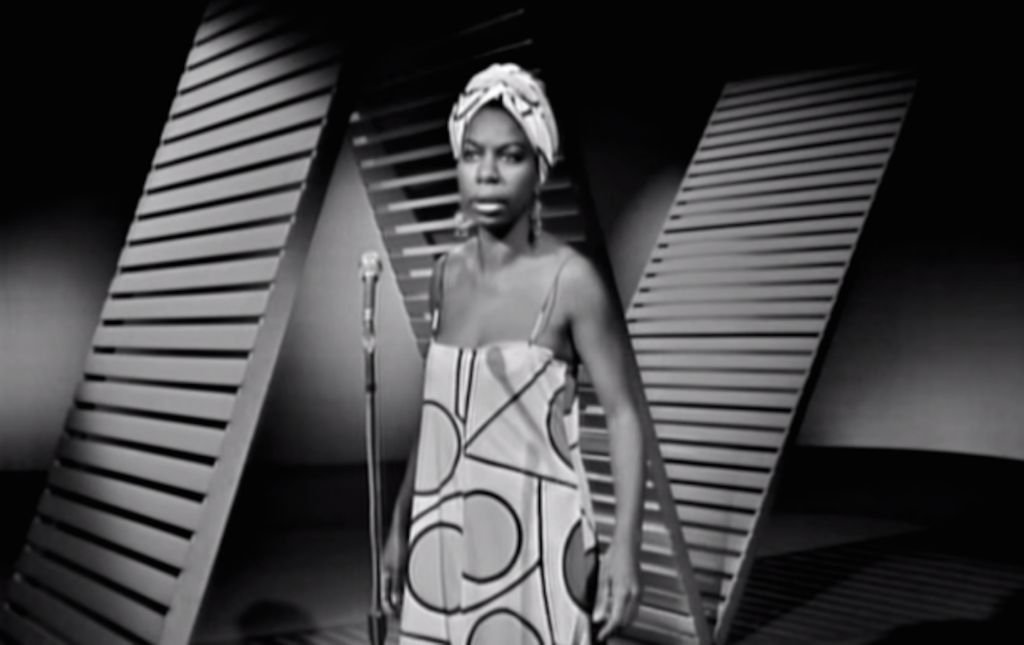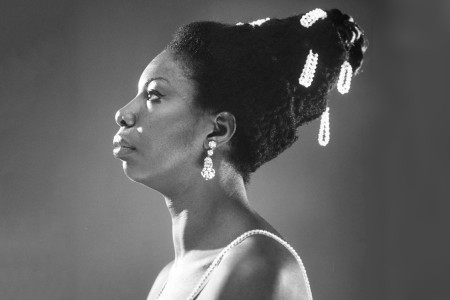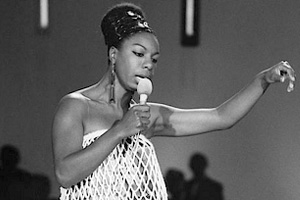Episode 3: Creating Magic: An Interview with Nicholas Tamagna (Part Two)
SOCIAL SHARE
SUBSCRIPTION PLATFORM
RECORDINGS FEATURED ON THIS EPISODE
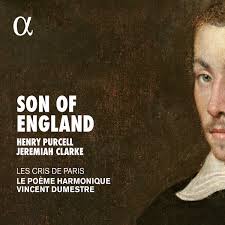
Henry Purcell: Here the Deities approve (Movement 3 of Welcome to all the pleasures, Z. 339) Nicholas Tamagna, countertenor, Vincent Dumestre leading Le Poème Harmonique (from Son of England: Music of Henry Purcell and Jeremiah Clarke, Alpha Classics, ALPHA 285, issued April 2017). If you click on the title of the piece, you will be taken to a music video that Nicholas made to accompany the CD release.
Leather and Lace: Remember Me (no public link available). The song was written for the three Evans sisters, Kathy, Carol, and MaryAnn by Porter Carroll, Jr. of Atlantic Starr fame. The group was known by various names, but ultimately they settled on Leather and Lace. Carol Evans is Nicholas’s mother.
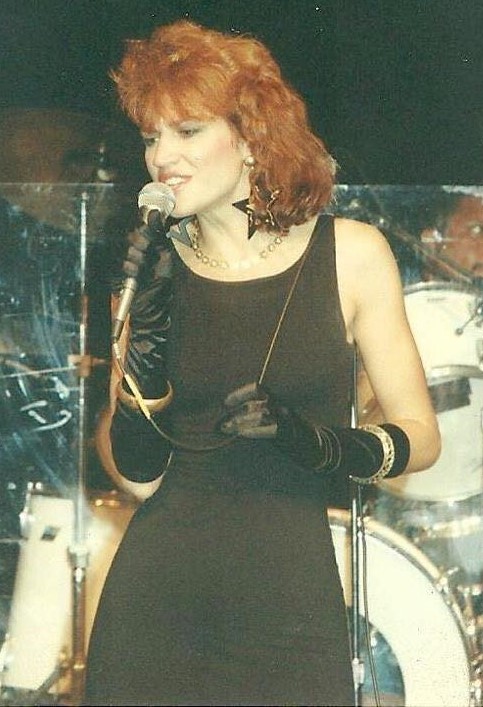
Carol Evans 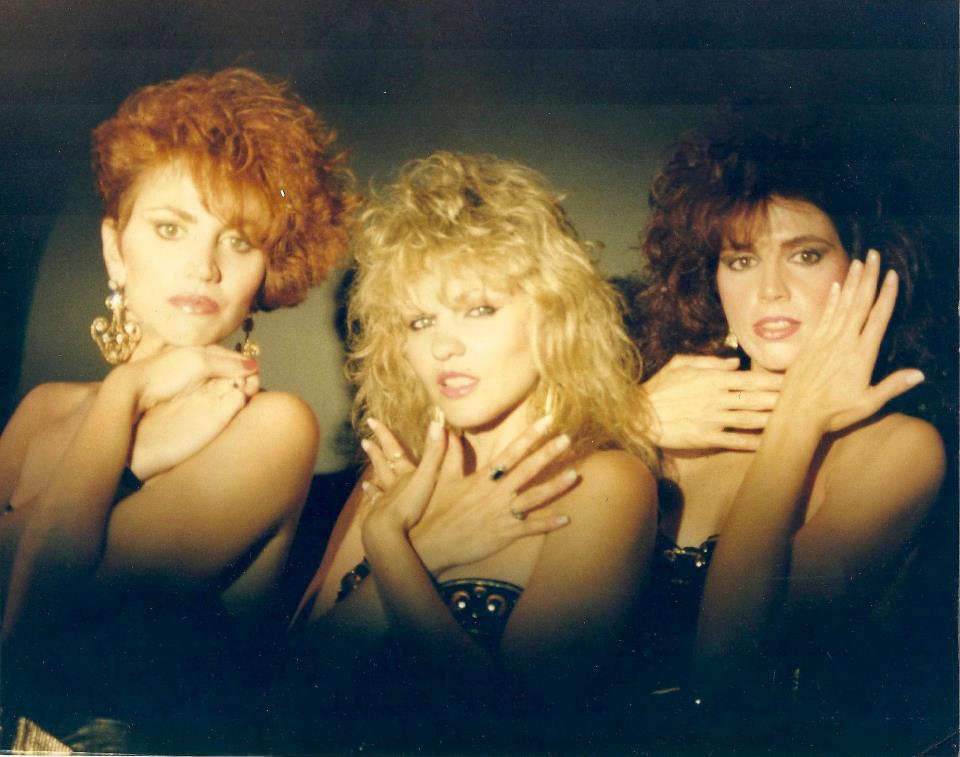
Leather and Lace (Carol, MaryAnn, and Kathy Evans) 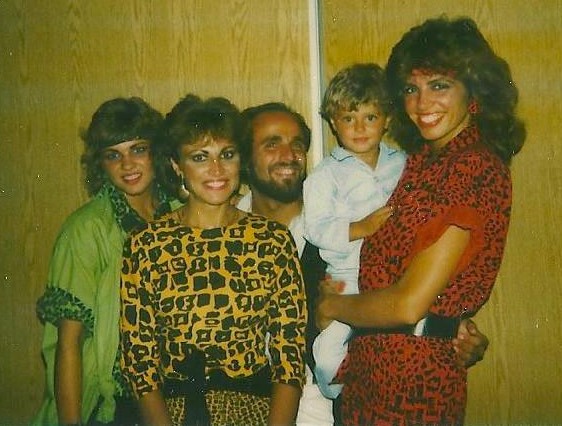
Nicholas as a toddler in his glamorous mother’s arms 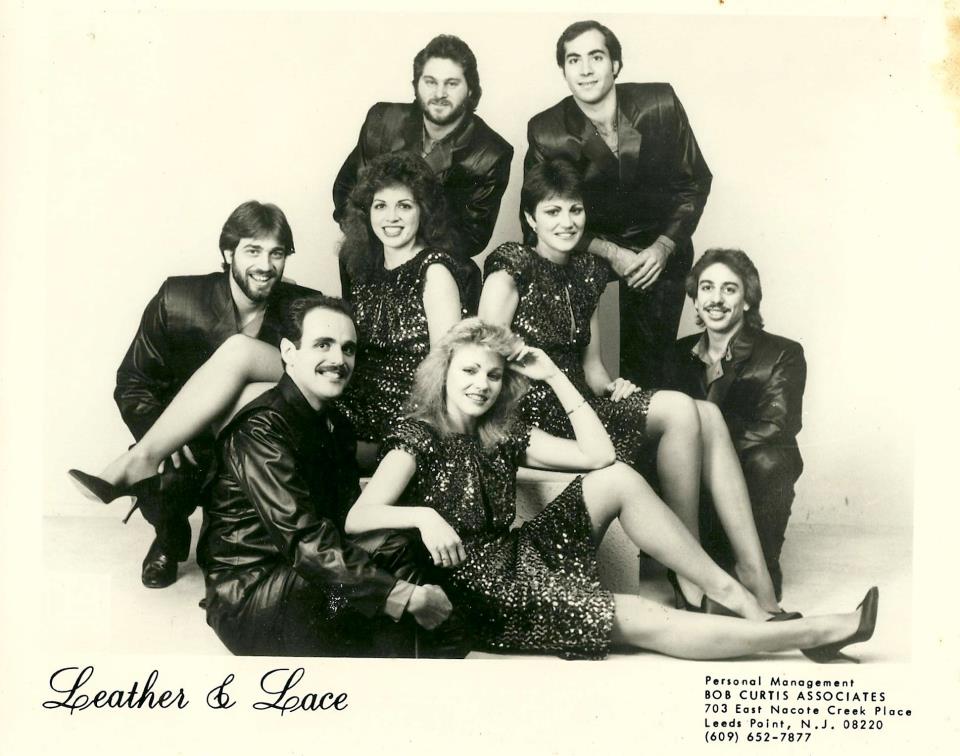
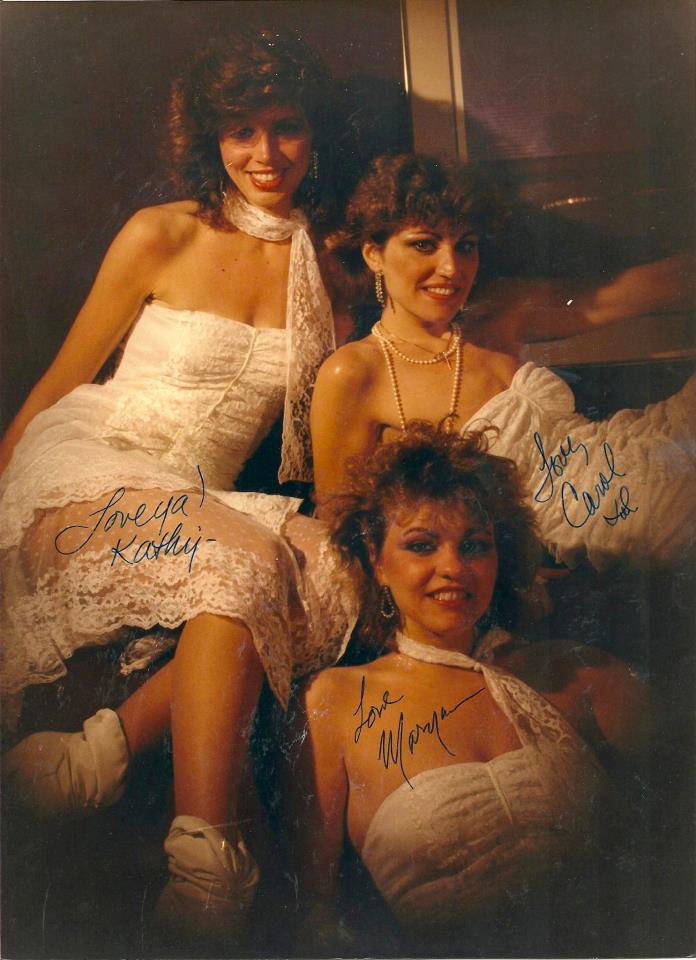
Kathy, Carol, and MaryAnn: Leather and Lace
For those of you wanting a little bit more of Leather and Lace, here is a video that Nicholas posted to his Facebook page a while back. It’s less polished than the Remember Me clip but it’s live and it’s tons of fun.
Arrigo Boito: L’altra notte in fondo al mare (Mefistofele). Maria Vitale, soprano, Alfredo Simonetto, conductor (recorded March 28, 1954). Nicholas mentions the 1989 San Francisco Opera telecast of Mefistofele starring Samuel Ramey, Gabriela Beňačková and Dennis O’Neill as his introduction to opera as a young boy. I felt compelled to include this red-hot recording of Margherita’s aria by the elusive Maria Vitale.
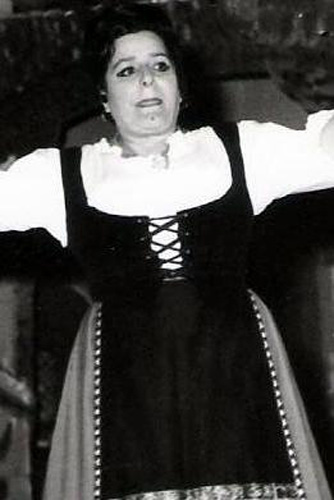
Maria Vitale in a rare stage photo as Santuzza. 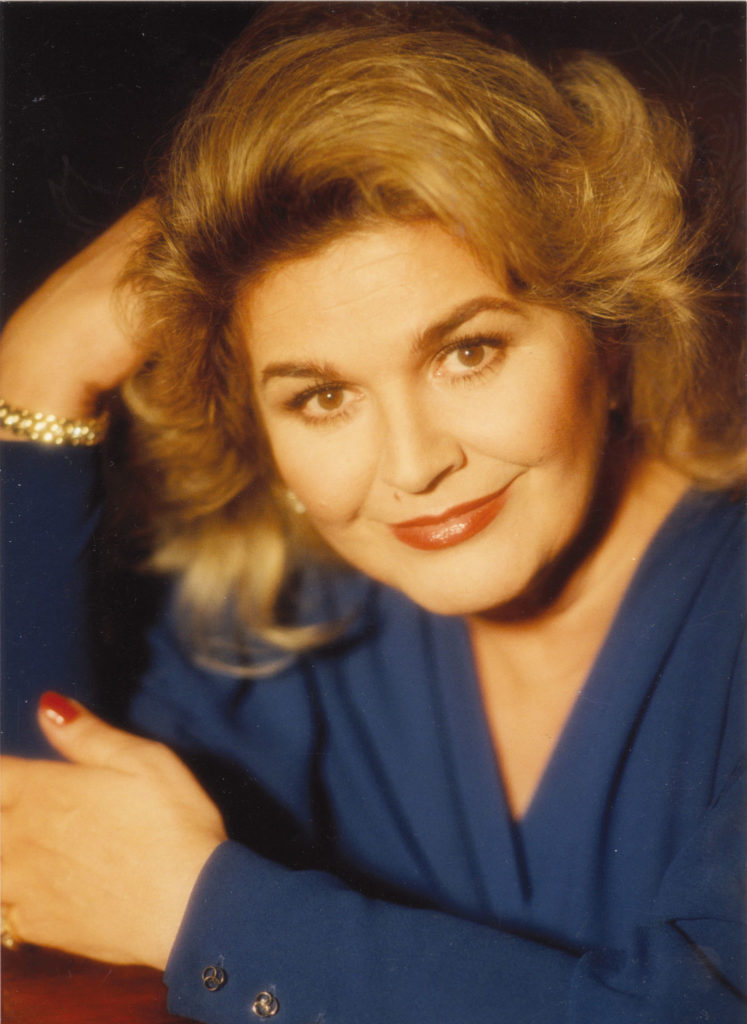
Gabriela Beňačková 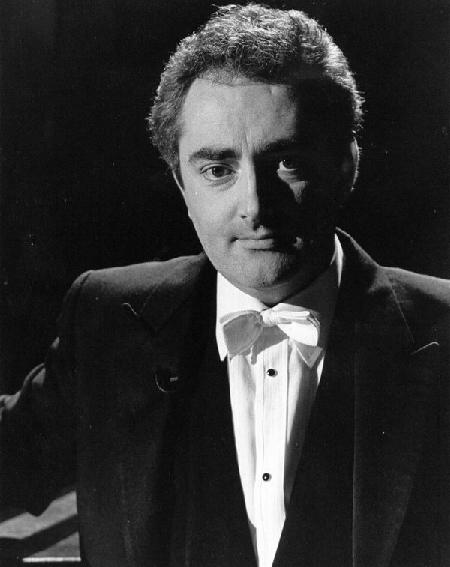
Dennis O’Neill 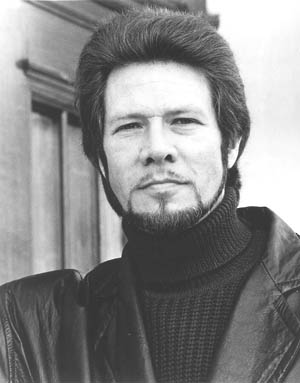
Samuel Ramey
Two excerpts from Oliver! by Lionel Bart featuring Nicholas Tamagna. (a) Who Will Buy? featuring Nicholas as a boy soprano in the title role and (b) Reviewing the Situation with Nicholas as a baritone in the role of Fagin. And while we’re on the subject of Oliver! I think we need to take a break to listen to Judy sing the killer ballad from this show, As Long as He Needs Me. from Episode 25 of The Judy Garland Show, filmed on March 6, 1964 and aired on March 22, 1964. And since I adore Life-or-Death singers (and I love going off on digressions), I am also going to refer you to the creator of the role of Nancy, Georgia Brown, whose performance of As Long As He Needs Me on The Ed Sullivan Show on February 9, 1964, probably left the TV audience gasping for oxygen.
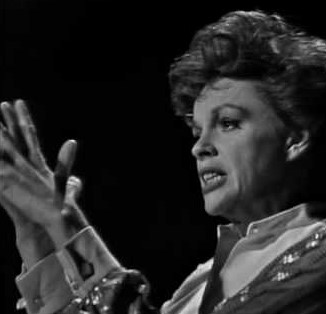
Judy performing “As Long as He Needs Me” on The Judy Garland Show. 
The Life-or-Death Georgia Brown
Arthur Johnston and Johnny Burke. Pennies from Heaven (Billie Holiday with Teddy Wilson and His Orchestra, recorded November 19th, 1936, Brunswick Records, 7789). I’d better not even get started on Billie. Like Judy, she is one of those singers that really, really gets to me but that I can’t listen to in large doses because I get overcome. Of course I prefer the late career Verve recordings because they are so frickin’ intense, but this version of Pennies from Heaven is simply delectable.
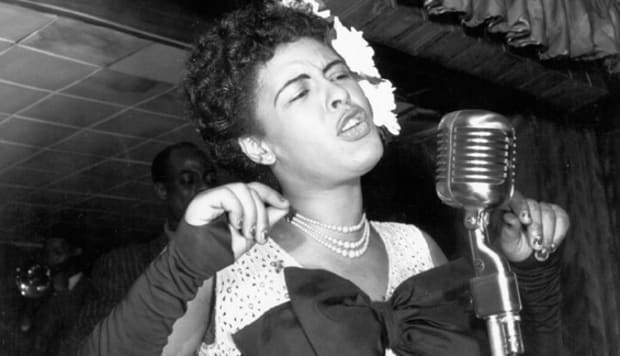
Philip Glass: Hymn to the Sun (Akhnaten). Nicholas Tamagna, countertenor (live recording from a joint 2013 performance between Indianapolis Opera and the Indiana University Opera Theater). Nicholas’s voice is well-suited to the relentless vocal writing of this aria. I used to present it in auditions though I was never cast in the role, and I can tell you, it’s tricky!
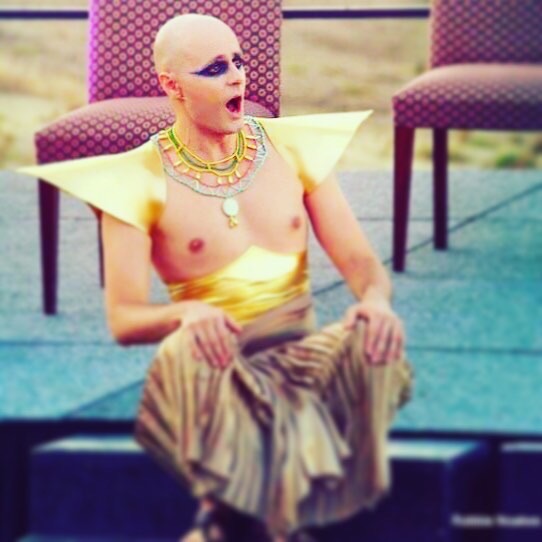
Three Favorite Singers of Nicholas’s
As I state on this episode, I am making a point of asking each of my interview guests to speak about a singer that has been particularly interesting, inspirational, formative… whatever. My guest had three different and fascinating singers that he cited. I will give you the details and links to the recordings that I used as well as offering a few additional listening selections. As always, enjoy!
Lorraine Hunt Lieberson
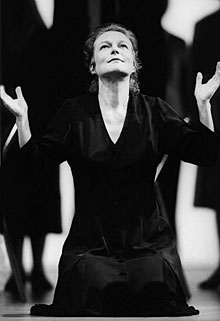
The late, great, American mezzo was a unique artist who left her mark initially in early music and later in art song and opera as well. In 2004 she was the subject of a wonderful artist profile by Charles Michener in The New Yorker; click on the link to find the article.
The clip that I chose to include in the podcast was of Lorraine singing “As with rosy steps the morn” from the iconic 1996 Glyndebourne production of Handel’s Theodora directed by Peter Sellars and conducted by William Christie. If you click on the link, you can watch as well as hear her marvelous performance. Additionally, (at least as of this writing), the complete filmed performance is available on YouTube. If you have three and a half hours to set aside to watch it, it’s definitely worth your time!
Additional Hunt Lieberson performances to savor:
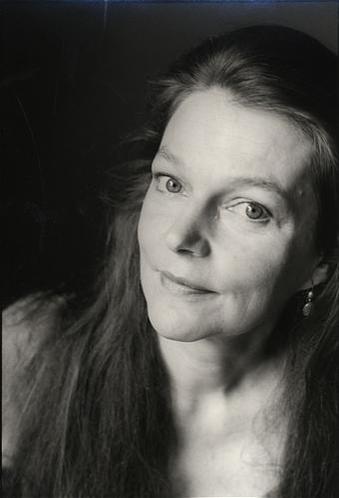
Johann Sebastian Bach: Ich habe genug (live performance, Amsterdam, June 2005). This was a performance of the Bach cantata staged by Peter Sellars in which Lorraine, already critically ill, portrayed a character facing death, wearing a hospital and hooked up to an IV. Peter Sellars’s spoken introduction precedes the performance of the piece. Her recording of this cantata on Nonesuch is the greatest since Janet Baker‘s, and that’s saying a lot. The gravity of the live performance, her final appearance in the Netherlands, renders the performance nearly unbearable. All I can say is, prepare yourselves.
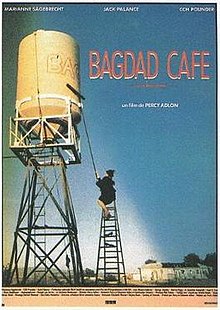
Calling You. ( live performance, Alice Tully Hall, 20 October 2002, Robert Tweten, piano). She could also sing the hell out of a pop song. Here she is in a live performance of Bob Telson’s beautiful song featured in Percy Adlon’s 1987 film Bagdad Cafe.
Enrique Granados: Decúbrase el pensamiento (Steven Blier, piano, Bridge Records 9228) A live recording from the Caramoor Festival of Spanish Love Songs includes this passionate performance of the Granados song.
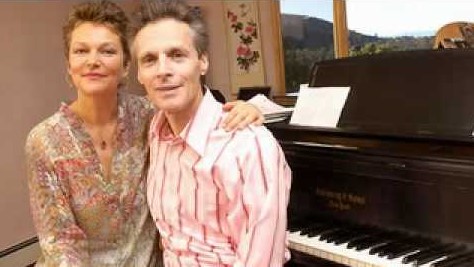
Peter Lieberson: Neruda Songs (live, November 2005, James Levine conducting the Boston Symphony Orchestra, Nonesuch Records, 79954-2). The composer Peter Lieberson (whose father was Columbia Records executive Goddard Lieberson and whose mother was Vera Zorina), met Lorraine in Santa Fe when she was in the cast of his opera Ashoka’s Dream. They fell in love and were married. These songs to texts by Pablo Neruda were written as a final gift to his wife, who performed them shortly before her death. It is this recording that is released here. Less than five years after her death, he also succumbed to cancer. LHL was a great proponent of contemporary music, partaking in important performances of works by John Adams, John Harbison, and others. These songs hark back to the intense lyricism of some of Mahler’s orchestral cycles.
Britten: Phaedra. (Jukka-Pekka Saraste, BBC Symphony Orchestra, live performance, 7 September 2003). One of Benjamin Britten’s last works, written in 1975, was this dramatic cantata, written for the eminent mezzo-soprano Janet Baker (clicking on her name will take you to a live 1979 performance with János Ferencsik conducting the Danish Radio Symphony Orchestra). Here Hunt Lieberson invests the work with an intensity and commitment comparable to that which Baker displayed.
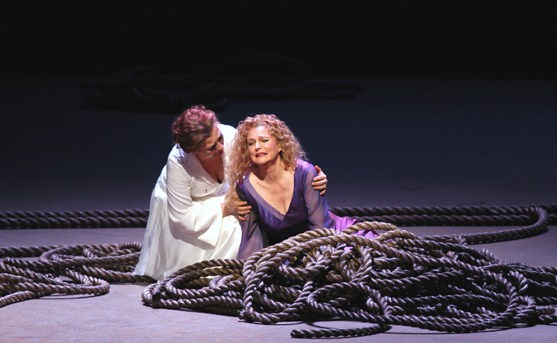
Hector Berlioz: Je vais mourir (Les Troyens) [unidentified live performance 2003; I suspect it’s from the Met]. Didon was one of her great operatic roles.
George Frideric Handel: “Va col canto lusingando” (Clori, Tirsi e Fileno , HWV 96) (1990 recording, Harmonia Mundi Records 907045, Nicholas McGegan conducting the Philharmonia Baroque). Here is a recording from earlier in the singer’s career, when she was singing soprano as well as mezzo-soprano parts. She was celebrated for her singing of Handel, and here one can hear why: there is such plangency in the phrasing, such ease in the execution, that the result is pure joy.
Deep River (American Spiritual). (Wigmore Hall Live Records, WHLive0013). A live recording from November 1998 from Wigmore Hall with pianist Roger Vignoles. This was a frequent LHL encore.
Here is an additional YouTube playlist which includes Hunt Lieberson performing music by Purcell, Mahler, Rameau, Handel, Elgar, Charpentier, and Mozart. Everything is worth your time and attention.
Jussi Björling
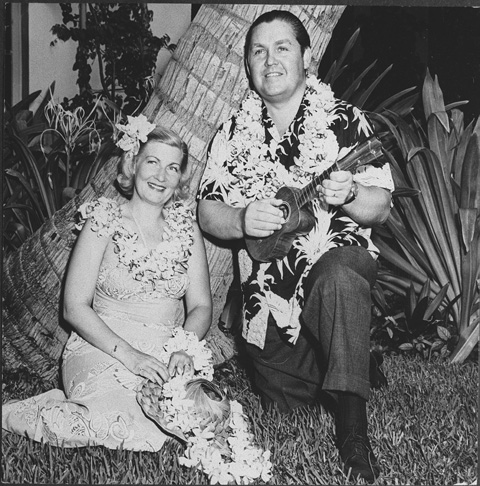
Jacques Offenbach: “Au mont Ida” (La belle Hélène) [sung in Swedish]. (Nils Grevillius conductor, recorded 1938. HMV, X.6090). One of the first Björling recordings I ever heard and perhaps still my favorite. In fact, the ending makes me tremble, quiver, and squeal. I’m not kidding. Every single time I hear it I get giddy.
I have something I must clear up: If it sounds in the interview as if I am somehow denigrating Björling because he had rather approximate diction in any language other than Swedish, it’s Fake News! Jussi is one of my very favorite tenors in the entire world, and a technical paragon of beautiful singing.
Now that we’ve got that out of the way, let me share several live Jussi recordings which should provide you with untold hours of listening pleasure:
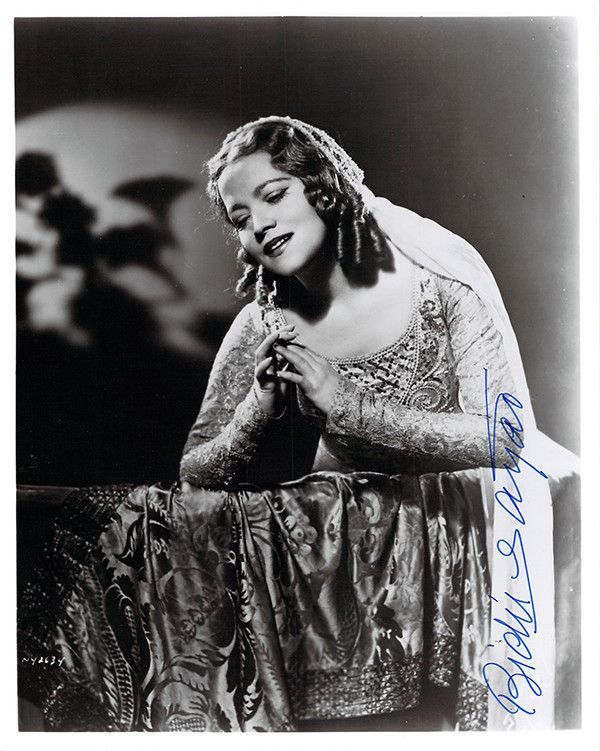
Charles Gounod: Roméo et Juliette, Act V (with Bidú Sayão, Emil Cooper conducting the Metropolitan Opera Orchestra. Live performance 1 February 1947). I am by no means embarrassed to go on the record stating that Gounod’s Shakespeare opera is quite possibly his masterpiece and certainly contains some of the greatest duets in all of French opera. The stars were aligned at the Metropolitan Opera on 1 February 1947, when the work received a performance for the ages that was, happily, broadcast. The recording is now available in an official version from the Metropolitan Opera, which is, however, already out of print. However you get your hands on it, do so and do so now! It should already be clear that Sayão is one of my favorite sopranos and both she and Jussi give inspired performances here. He had the vocal equipment to be the perfect tenor in the French repertoire. As always, enjoy!
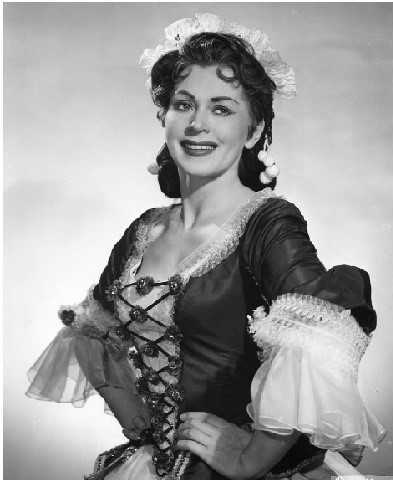
Charles Gounod: Faust (complete performance from the Metropolitan Opera on 19 December 1959 conducted by Jean Morel and also starring Cesare Siepi as Méphistophélès, Robert Merrill as Valentin, and Elisabeth Söderström as Marguerite). A mere 10 months before his premature death, Björling is, as usual, singing like a god. And what a cast alongside him, one which includes another of my favorite sopranos, the delicious Elisabeth Söderström in the first flush of youth.
Giuseppe Verdi: Two excerpts from Rigoletto: “Bella figlia dell’amore” (live from the Met, 29 December 1945, with Leonard Warren as Rigoletto, Bidú Sayão [again!] as Gilda, and Martha Lipton as Maddalena; and “È il sol dell’anima” with Hilde Güden and Thelma Votipka (on The Ed Sullivan Show, 1957). Björling also excelled in Verdi, being particularly well-suited to the title role in Don Carlo (which he performed in the legendary 1950 revival of the opera which began the Rudolf Bing-era at the Met; click on the link to hear him and Robert Merrill in the famous duet for Carlo and Rodrigo), Riccardo in Ballo (clicking on the link will take you to a 1940 recording from San Francisco of Act II of the opera with Elisabeth Rethberg [another of my very favorite sopranos] as his Amelia) Manrico in Trovatore (for which he was lightweight but nevertheless highly satisfying), and, perhaps above all, the Duke in Rigoletto. Two excerpts emphasize his matchless qualities in the role. The first is from what many knowledgeable persons consider to be one of the finest-ever performances of the opera, from the twilight days of 1945. (It is included in the jaw-dropping box Verdi at the Met on Sony Classics.) The second clip features the Act I duet in a 1957 performance from The Ed Sullivan Show [those were the days when one could encounter opera on prime time television!] with yet another of my favorite singers, Hilde Güden. It’s wonderful to see the two of them together and the beginning of the track you also get to see the marvelous Thelma Votipka, a gifted singer who graced the Met stage as the coprimaria par excellence in over 1400 performances in 28 years.
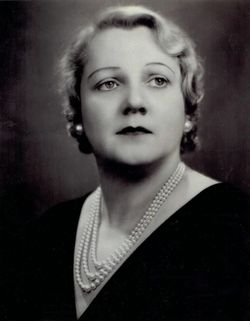
Elisabeth Rethberg 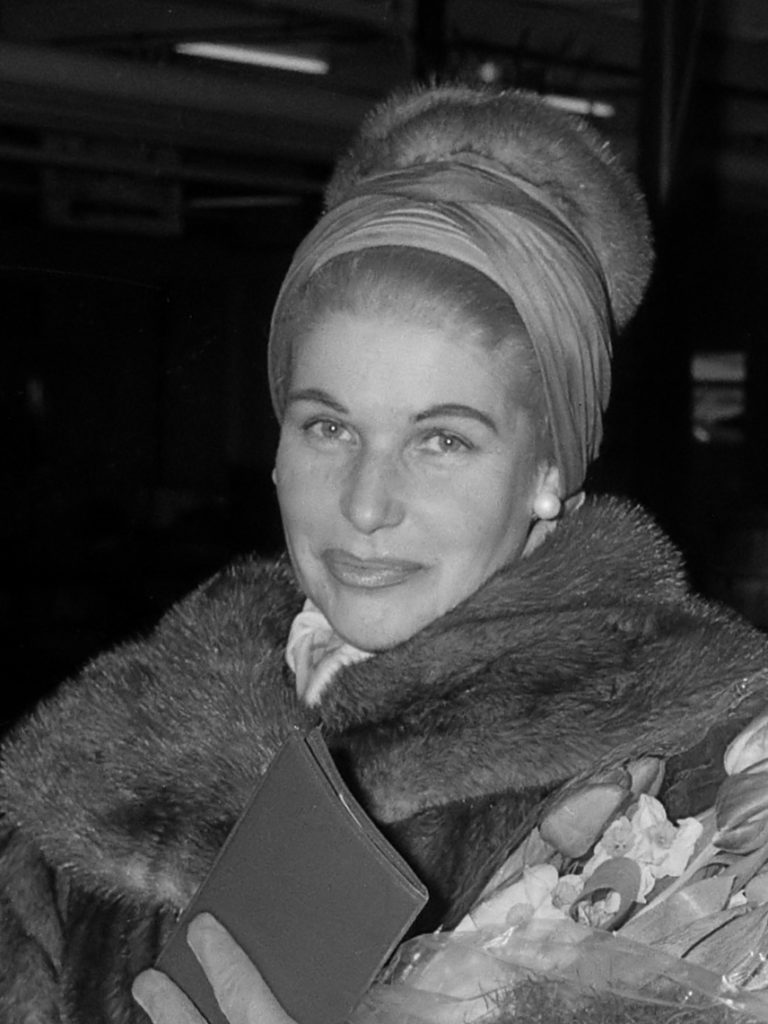
Hilde Güden
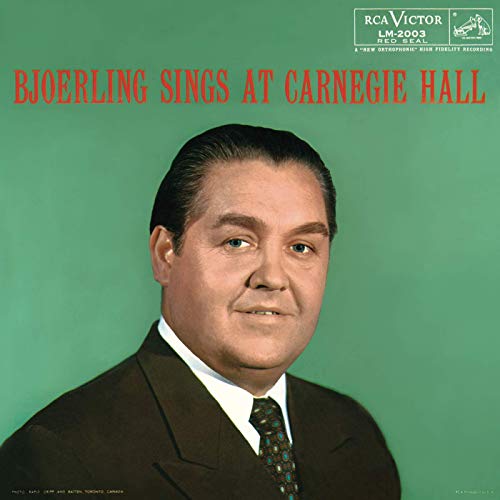
Finally, here is Jussi in one of his Carnegie Hall recitals that was recorded live by RCA. This one is from 24 September 1955. Accompanied by pianist Frederick Schauwecker he sings Lieder and art songs by Beethoven, Schubert, Strauss, Grieg, and Sibelius as well as scads of opera arias. I particularly love the way he spins out his honeyed tone in a very slow performance of Beethoven’s Adelaide. In fact, it’s probably too slow for the music to unfold properly, but just as sheer vocal display, it’s sublime.
Nina Simone
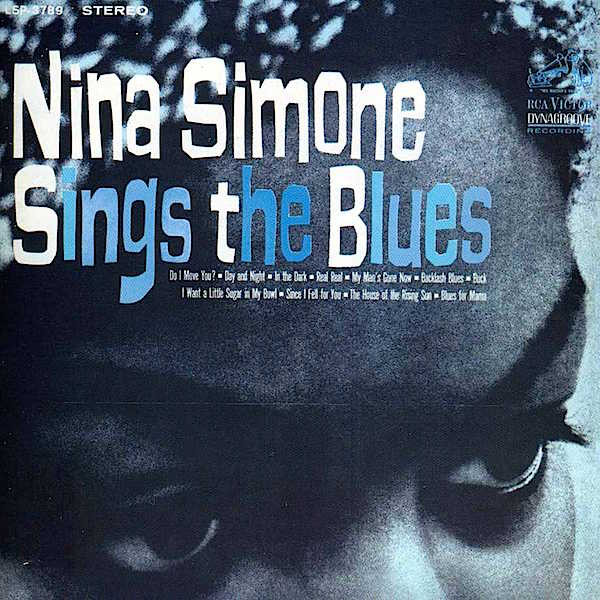
Nina Simone, Langston Hughes: Mr. Backlash. (live recording from London, 14 September 1968). To me this recording perfectly captures Nina Simone’s Fuck-You attitude as well as unleashing her full power as a force of nature.
Richard Rodgers, Oscar Hammerstein II: You’ll Never Walk Alone (Carousel). (from Little Girl Blue [aka Jazz as Played in an Exclusive Side Street Club], Bethlehem Records BCP 6028, 1958). This track is from Simone’s first album, for which she was paid a flat rate $3,000 and never made a penny more on it. Nicholas and I mention in the podcast that she was rejected from the Curtis Institute of Music as a piano student, but as you hear on this recording, she could play the hell out of that thing! Though she doesn’t sing here at all, this remains one of my favorite Nina Simone recordings.
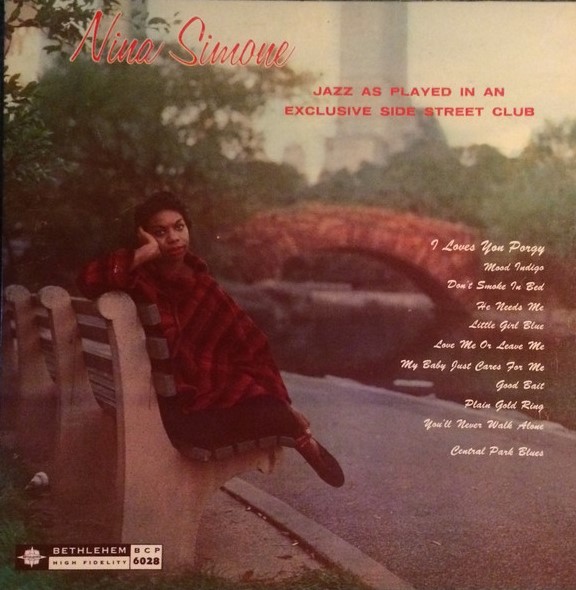
Walter Donaldson, Gus Kahn: Love Me or Leave Me (also from Little Girl Blue [aka Jazz as Played in an Exclusive Side Street Club], Bethlehem Records BCP 6028, 1958). The Bachian piano riff in the middle of this one catapults it into the realm of the inspired and unforgettable.
HARDTalk Interview with Tim Sebastian, BBC, 1999. For anyone who has not fully experienced the outspoken, take-no-prisoners, suffer-no-fools attitude that was Nina Simone, take a look at this interview. SO many bon mots it’s hard to cite just one, or even a dozen, so I’ll let you pick your own favorites.
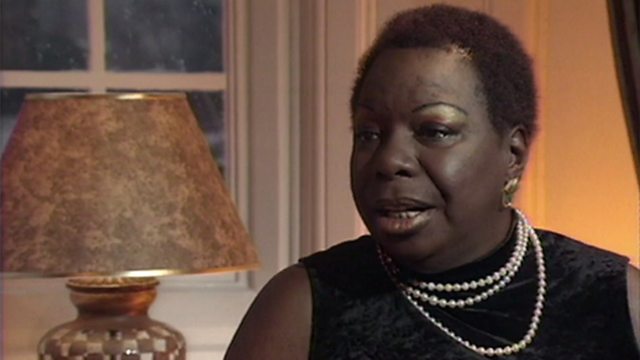
Though I have always stood in complete awe of Ms. Simone, I was not nearly as well-versed in her output as is Nicholas, who directed me to some of his favorite among her many performances.
Billy Taylor, Dick Dallas: I Wish I Know How It Would Feel To Be Free. (live in Montreux, 1976). The high priestess goes off on one of her brilliant riffs here and the audience goes wild.
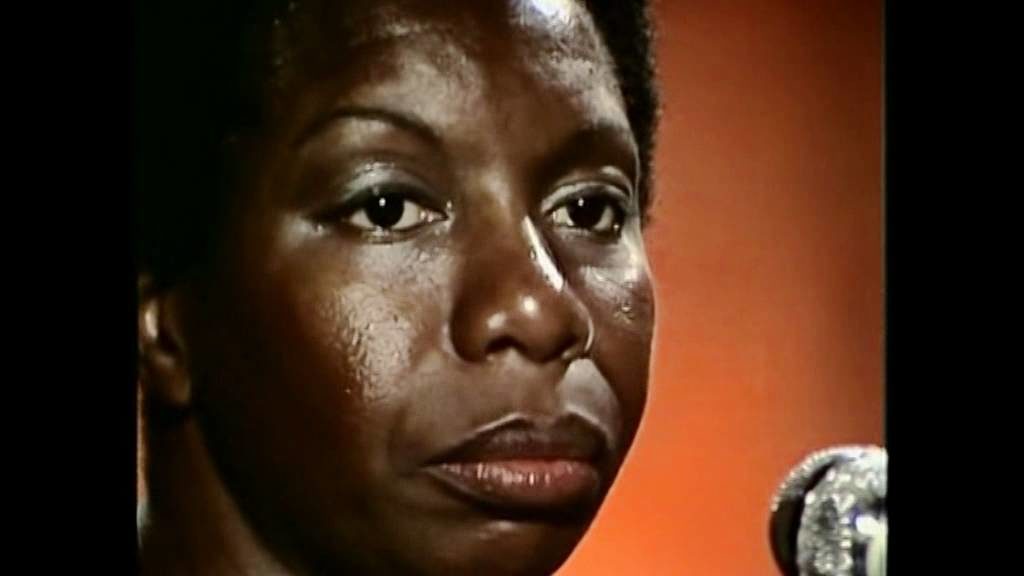
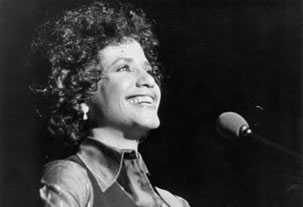
Janis Ian: Stars. (live in Montreux, 1976). I love this Janis Ian song with all my heart. It’s one that I actually perform fairly often myself and it is one that has been recorded by everyone from Barbara Cook to Cher. But I have never heard anyone give as raw or personal a rendition as does Simone here, which builds to a painful climax. As a bonus, you get to hear her blow up at someone in the audience at the very beginning of the performance.
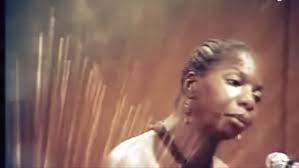
Jacques Brel: Ne me quitte pas (live on French television, 18 December 1971). Another confessional song that seems to bring out the best in whomever sings it. In Simone’s version, it’s as if the words and the song are being ripped out of her. And then there’s that “Sorry about the world, y’all” at the end…
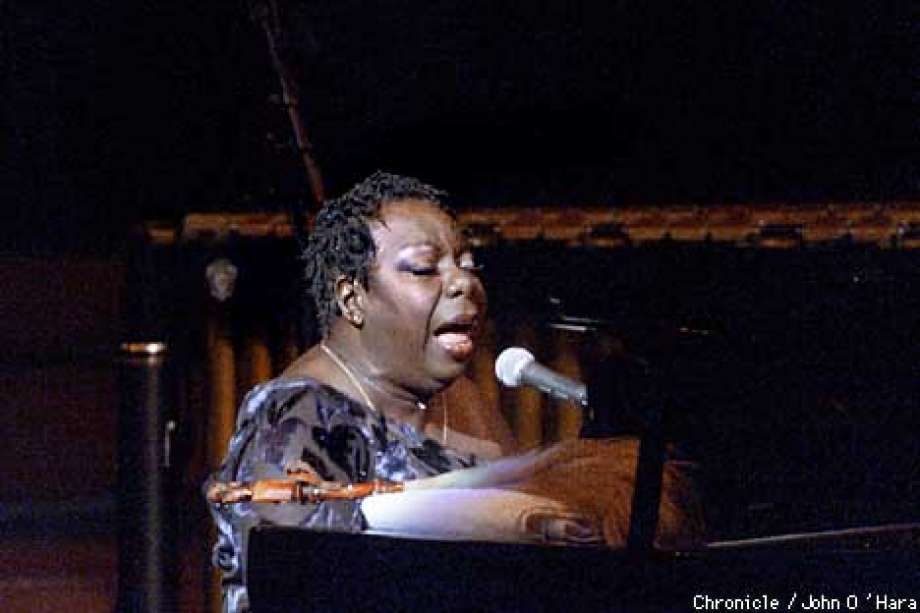
Nina Simone Live in Holland 1965 and London 1968. I think that the best way to experience Nina Simone is in live performance. When I think that I could have seen her in 2000 when she performed with the San Francisco Symphony and simply chose… NOT. TO. GO… I could just kick myself! Anyway, Nicholas cited her performance of Little Brown Baby at the beginning of the linked clip to be his very favorite among her performances. It really is something…
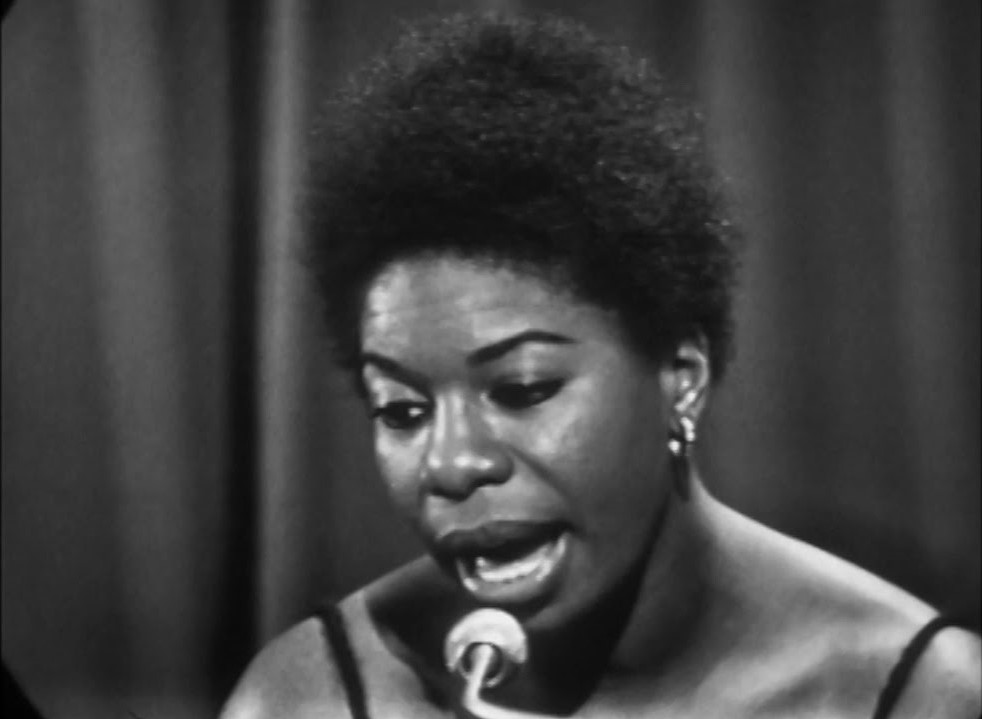
Nicholas also highly recommended to me the 2015 documentary, What Happened, Miss Simone? that I am very much looking forward to viewing in the near future. The link is to the trailer for the film.
Finally, a YouTube playlist of Nina Simone’s most celebrated performances and recordings. Fasten your seat belts and settle in for the ride!
